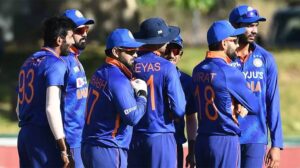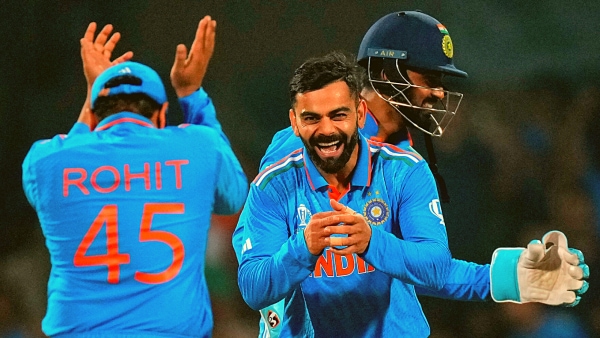World Cup of Cricket: How India can defy the rule of averages, Hussey and Hayden divulge the mystery. The Indian team in the World Cup has an aura of invincibility. India has been the team to beat by far as the competition moves into the semifinals, despite not being considered the clear favorite to win their second global title at home.
India has only been improving their performance and intensity each time they have on the field since their opening game in Chennai, where they overcame an early deficit to win handily.
With an extremely talented batting lineup that includes several game-winning singles, and the strongest fast-bowling unit they have ever had, this team led by Rohit Sharma is demonstrating to the Men in Blue supporters what it would have been like for the Australians in the 2000s.
Of all, India hasn’t won anything yet despite their commanding cruise through the league stage. However, no team has appeared invincible in the previous 12 rounds, with the exception of Australia in 2003 and 2007.
With just two boxes left to check, India is ticking off goals left and right, but there is one fundamental question that is on the minds of all India supporters. In the knockout stages, will the law of averages catch up to India?
But it is unexpected that India has shown such domination this time around against all nine of their opponents. The Australian squad led by Ricky Ponting in the 2007 World Cup was the only team to have such a strong run from beginning to end.
They were pushed hard by England and New Zealand in South Africa, where they had also won the trophy in the previous edition, but none of the teams in the Caribbean even remotely challenged them.
Australia had comparable concerns even back then, particularly with regard to the law of averages, especially as its major players were nearing the end of their careers.
“It’s truly up to the pundits to determine and debate during a World Cup. In the end, though, you can measure the performance of a squad and the desire and appetite for a trophy and title by each game inside the unit.
Matthew Hayden, the winner of two World Cups, says that the only real objective is to play each game on merit, making it a ball-by-ball, over-by-over, innings-by-innings, match-by-match exercise.
Similar to the Indian team prior to the 2007 World Cup, Australia was not considered the favorite despite having won the title twice. Their reputation had been somewhat damaged by a lackluster home summer in which they lost the tri-series against England and a humiliating defeat in New Zealand a few weeks prior to the World Cup.
The tournament appeared to be one in which the Australians would lose, especially with South Africa emerging as a formidable opponent; nonetheless, the winning run that started at the 1999 World Cup also extended throughout the Caribbean.
Hussey acknowledges that there aren’t any more worries now about this Indian team’s capacity to withstand the strain of playing in front of home supporters. “I was wondering how they would manage the strain of playing at home before the competition.
They appear to be having a great time performing in front of sizable audiences. The players are grinning, having a fantastic time, and playing excellent cricket. They will need to maintain that mindset in the semifinals.
It will take a very exceptional effort to overcome them if they can keep up that and play self-assured cricket, according to Hussey.

































